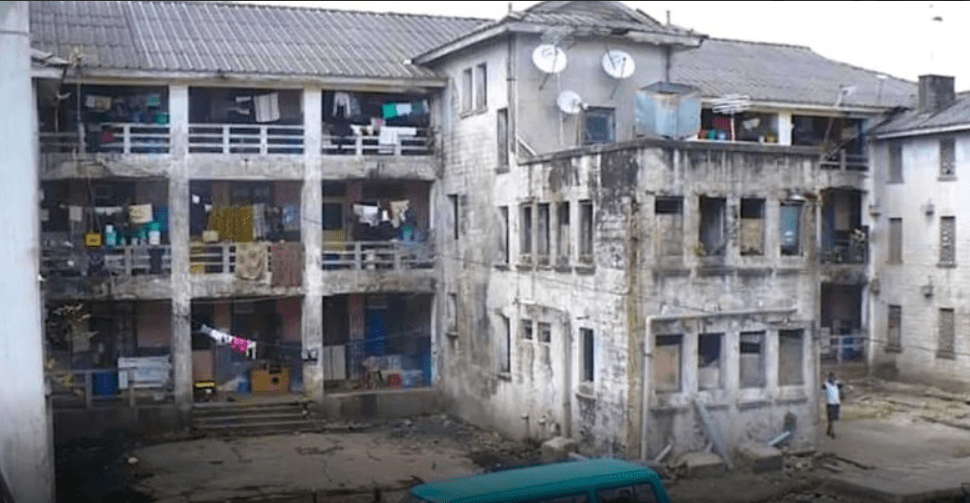The police force headquarters, Abuja, has explained the demolition of the iconic Falomo barracks in Lagos, made famous by its closeness to the Army Dodan Barracks, the seat of Power during the military regimes of the seventies and eighties, before the federal capital moved from Lagos to Abuja.
The Force Headquarters said the iconic barracks had become due for renovation, adding that the demolition was done to make room for the redesign and reconstruction of the barracks and similar ones, previously in disrepair, to create modern, habitable accommodations that reflect the dignity deserving of its officers.
Force public relations officer Olumuyiwa Adejobi, who made this known, denied reports that its personnel were forcefully evicted from the barracks. Rather, he said
that the occupants of the barracks were given adequate notice and paid N2 million each to secure alternative accommodation before the demolition.
Adejobi, in a statement titled, “Clarifying the Reconstruction of Falomo Police Barracks and Combating Misinformation,” took umbrage at what he called media sensationalism and misinformation regarding the Falomo Police Barracks in Lagos State, saying: “The Nigeria Police Force (NPF) wishes to address recent misinformation and sensationalism in the media concerning the reconstruction of the Falomo Police Barracks, Lagos State. The barracks, previously in disrepair, will undergo a complete redesign and reconstruction to provide modern, habitable accommodations that reflect the dignity our officers deserve.
“This project was initiated under the leadership of former Inspector-General of Police (IGP), Usman Baba Alkali, in collaboration with the Lagos State Government and private sector partners through a Public-Private Partnership (PPP). The current IGP, Dr. Kayode Adeolu Egbetokun, NPM, reaffirmed the Force’s commitment to improving officers’ housing by convening the first Nigeria Police Force Housing Summit on April 23-24, 2024. This summit brought together stakeholders to chart a sustainable path toward improved police welfare.
“A nationwide assessment revealed that less than 25% of police personnel have access to adequate barracks accommodations, with 90% of existing barracks falling into severe disrepair. Many of these structures are dangerously unsafe, posing a clear risk to occupants. The urgent reconstruction of these facilities, including Falomo Barracks, is not only necessary but aligned with international best practices to ensure the safety and well-being of our officers.”
Accordingly, the IGP, Kayode Egbetokun, through the NPF Property Development and Construction Company, “has leveraged PPP arrangements to rebuild existing barracks and provide affordable housing for officers,” Adejobi stressed.
“PPP models, which integrate private sector investment into public infrastructure, have been successfully adopted across various sectors in Nigeria, such as rail projects and university hostels, and globally in police housing initiatives,” he declared.
“Several countries around the world have successfully employed PPPs to provide modern housing for police personnel, with global examples of PPPs in Police Infrastructure including:
• United Kingdom: PPPs have been utilized to develop and manage police estates and accommodations.
• Australia: The New South Wales Police Force has partnered with private developers for residential facilities.
• United States: Cities like Los Angeles, New York, and Chicago have adopted PPP models for police housing.
• Canada: The Royal Canadian Mounted Police (RCMP) has engaged private developers for police accommodations.
• South Africa, Egypt, and Morocco: These countries have implemented PPPs to address the housing needs of their police forces.
• India and Singapore: State governments and police forces have collaborated with private developers to upgrade infrastructure and residential facilities.
• Algeria and Ethiopia: These nations are actively pursuing PPP models to build thousands of housing units for police and military personnel.
“The growing adoption of PPPs reflects a global trend toward sustainable infrastructure development and enhanced police welfare.”
According to him, “contrary to recent reports, no officers were forcefully evicted from the Falomo Barracks. Occupants were given adequate notice, provided relocation assistance, and compensated with N2,000,000 each to secure alternative accommodation. Furthermore, they will receive monthly rent allowances in line with provisions for officers not residing in the barracks. Upon completion of the new facility, these officers will be allotted housing units, ensuring a seamless transition back to improved living conditions.”
“We urge the public to dismiss false narratives regarding this reconstruction and recognize the broader objective of enhancing police welfare. The NPF remains committed to the well-being of its personnel, understanding that dignified living conditions are essential to effective service delivery.
“The rebuilding of Falomo Barracks reflects our unwavering resolve to provide safe, decent housing for officers, a vision that aligns with global standards and safeguards the future of those who serve. We appeal to the public to support these reforms, which aim to enhance the quality of life for our officers and strengthen the foundation of public service in Nigeria,” Adejobi surmised.



























